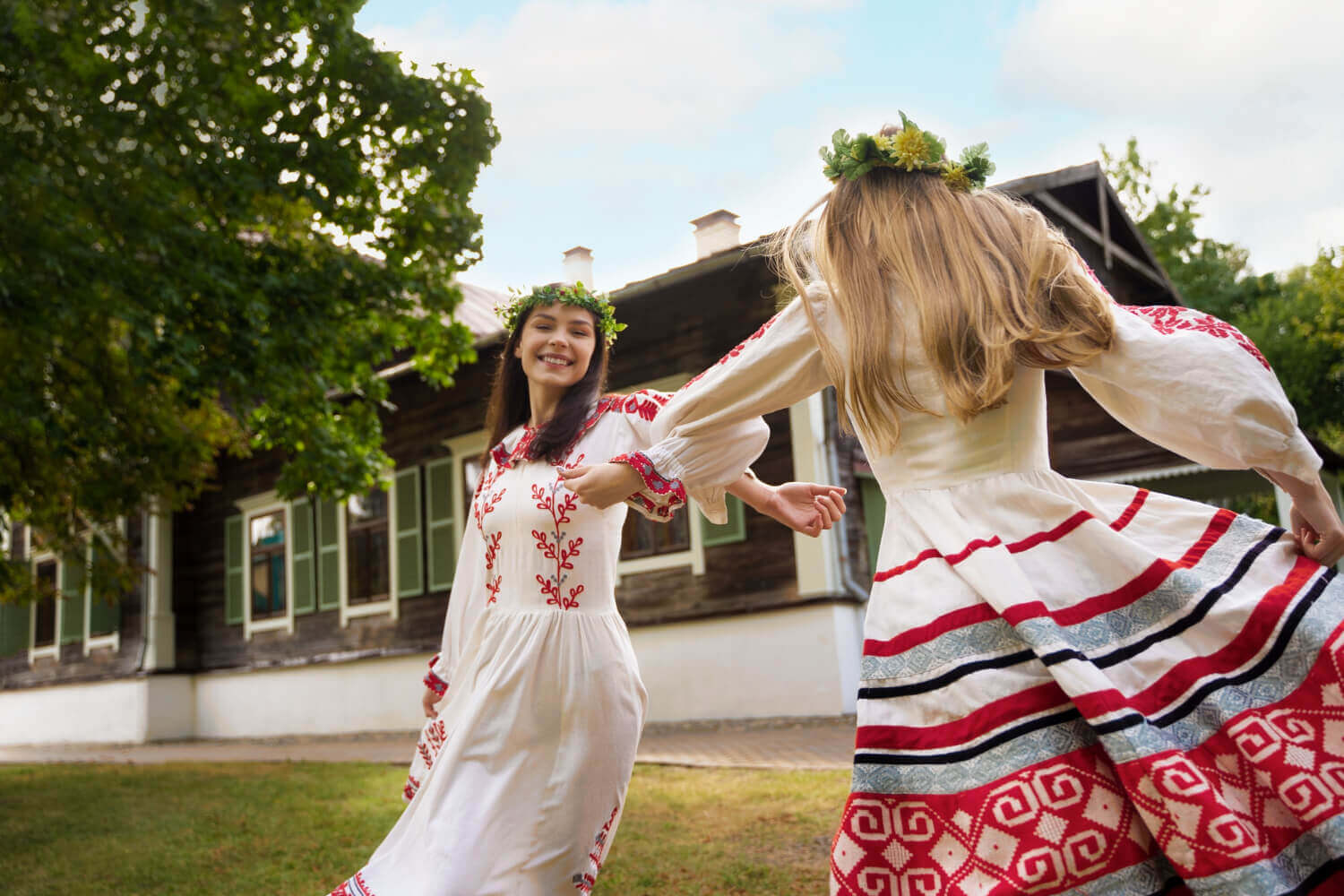Greetings, dear reader. As a seasoned expert in the Russian language and culture, I welcome you to this article on understanding the nuances of cultural references in the Russian language.
The Russian language is rich with idioms, phrases, and sayings that carry deep cultural significance beyond their literal meaning. For those who genuinely seek to understand and appreciate the beauty of the Russian language, it is essential to grasp these subtleties.
Russian culture has been shaped by its turbulent history, from Tsarist rule to Soviet communism. This complex past has given birth to unique values, customs, and traditions reflected in spoken and written communication.
To fully comprehend the intricacies of the Russian language requires an appreciation for its historical context and an open mind toward new perspectives. Join me on this journey of discovery into the intricate world of the Russian language and culture – together we will unlock hidden meanings behind seemingly simple words!
Table of Contents
The Historical Context Of Russian Language And Culture
Did you know that Russian is the eighth most spoken language in the world, with over 258 million speakers? The language has a rich history and an extensive vocabulary, which reflects its influence on other languages. It is a Slavic language shaped by various factors, including the Soviet influence.
The impact of Russian literature on society must be considered. It played a significant role in shaping the culture and values of Russia. From Tolstoy’s War and Peace to Dostoevsky’s Crime and Punishment, these literary masterpieces provide insight into the complex nature of Russian society.
The themes explored in these works are still relevant today and have influenced not only Russian but also Western culture. Understanding the historical context of the Russian language and culture provides valuable insights into unique values and customs within Russian society.
Unique Values And Customs In Russian Society
Having explored the historical context of the Russian language and culture, it is essential to understand the unique values and customs deeply ingrained in Russian society.
One such aspect is folk traditions, which serve as a way for Russians to connect with their cultural roots. From the colorful costumes of traditional dances to the intricate designs on painted wooden dolls, these customs provide insights into centuries-old practices passed down from generation to generation.
Another crucial element of Russian society is a social hierarchy, where respect for elders and those in positions of authority is highly valued. This can be observed through formalities such as addressing people by their titles or last names instead of first names, especially when meeting someone for the first time.
Additionally, certain gestures and mannerisms are considered polite or impolite depending on one’s position on the social ladder. Understanding these nuances is essential for building relationships and avoiding misunderstandings in everyday interactions.
Moving forward, we will delve deeper into idioms and phrases with deep cultural significance commonly used in spoken and written forms of communication.
Idioms And Phrases With Deep Cultural Significance
As the saying goes, ‘Язык до Киева доведет,’ which means ‘Language will take you as far as Kyiv.’ This is a perfect example of how cultural influences are embedded in Russian idioms. The phrase implies that one can only go so far with language proficiency alone and must also understand the culture to communicate honestly.
Understanding humor in Russian idioms requires an understanding of cultural nuances. For instance, the idiom ‘Хоть кол на голове теши’ literally translates to ‘Sharpen a stake on your head,’ but it means ‘You’re being stubborn.’ It’s important to know this because someone might take offense at such a statement without understanding its true meaning.
Knowing the historical context behind certain words or phrases can evoke nostalgia and pride.
Recognizing regional dialects within Russia can create a sense of belonging for those who identify with that particular region.
Understanding the origins of certain idioms can spark curiosity and encourage further exploration of Russian history and culture.
Navigating through cultural nuances in communication involves much more than simply mastering grammar rules and vocabulary. It requires an appreciation and understanding of cultural references, including idiomatic expressions deeply rooted in history and tradition. With this knowledge, one can effectively navigate conversations with native speakers while gaining insight into Russian culture.
Navigating Cultural Nuances In Communication
Idioms and phrases are essential components of the Russian language. They have deep cultural significance that reflects the country’s rich history, traditions, and beliefs. Understanding these idioms and their meanings can help you communicate more effectively with native speakers while also showing cultural sensitivity.
However, it is not enough to simply memorize a list of idioms without understanding their context or nuances. Cross-cultural communication requires an open mind and willingness to learn about different cultures to appreciate them fully. When communicating with Russians, it is essential to be aware of their customs, social norms, and values.
This knowledge will enable you to build strong relationships based on mutual respect and trust.
Appreciating The Beauty Of The Russian Language
The Russian language is a true marvel of linguistic beauty. It’s poetry and literary classics are renowned worldwide, capturing readers’ hearts with depth and richness for centuries.
The nuances and subtleties within each word create a tapestry of meaning that can only truly be appreciated by those who understand the cultural references inherent in every sentence.
To truly appreciate the beauty of the Russian language, one must delve into its history and culture. From Pushkin to Dostoevsky, the great works of literature have inspired generations of writers and artists around the globe.
Each word is carefully chosen to convey not just meaning but emotion, giving readers a glimpse into the heart and soul of Russia itself. Through these masterpieces, we understand not just language but also people who have endured hardships yet still find joy in life’s simple pleasures.
As you explore this fascinating language, savor each phrase as if it were a work of art. Immerse yourself in its poetry and lyrical quality, allowing yourself to feel the emotions behind each syllable.
Remember that beneath every word lies centuries of rich history and culture waiting to be discovered. Through careful study, you too can unlock the secrets hidden within this remarkable language — one that has captured hearts for centuries without ever losing its power or allure.
Frequently Asked Questions
What Are Some Common Stereotypes About Russian Culture And People?
Regarding Russian cultural pride, several stereotypes persist in popular culture.
Some people might assume that all Russians are cold and unfeeling or are obsessed with vodka and always dressed in fur hats.
However, these stereotypes couldn’t be further from the truth.
While it’s true that some aspects of Russian culture may seem foreign to outsiders, such as the emphasis on collectivism and community over individualism, it’s important to remember that every country has its unique customs and traditions.
Rather than perpetuating outdated stereotypes, we should focus on debunking them through education and understanding.
By learning about the Russian language and culture, we can gain a deeper appreciation for this rich and diverse society while also dispelling harmful misconceptions along the way.
How Has The Russian Language Evolved?
The evolution of the Russian language has been influenced by many historical factors, including invasions by Mongols and Tatars, cultural exchanges with neighboring countries such as Poland and Lithuania, and reforms implemented during the Soviet era.
As a result, the modern Russian language is characterized by its complex grammar rules and rich vocabulary that reflects its diverse linguistic roots.
Understanding these influences on the development of the language can provide valuable insights into not only linguistics but also Russian culture and history.
As experts in the Russian language and culture, it’s important to continually explore this topic to deepen our understanding of this fascinating subject matter for those seeking more excellent knowledge.
What Common Russian Customs And Traditions May Seem Strange To Outsiders?
As a Russian language and culture expert, many customs and traditions in Russia may seem strange to outsiders.
From bizarre rituals like jumping into icy water during the winter to traditional cuisines like pickled herring and borscht soup, there is no shortage of unique aspects to Russian culture.
It’s essential for those interested in understanding this fascinating country to take the time to learn about these customs and appreciate them for what they are — an integral part of the rich tapestry that makes up Russia’s cultural heritage.
How Do Russians View Personal Space And Physical Contact In Social Situations?
In Russian social interactions, understanding cultural norms is critical to avoid misunderstandings.
Personal space and physical contact are viewed differently in Russia than in many other cultures, with more emphasis on closeness and touch.
Greetings and etiquette also play a significant role in socializing, with formalities like handshakes and polite phrases being highly valued.
Additionally, alcohol often plays a central role in Russian social gatherings, but it’s essential to understand the drinking culture and customs before participating.
As an expert in Russian language and culture, I encourage anyone seeking to navigate these nuances to approach them with openness and curiosity – doing so will not only help you avoid missteps but can lead to deeper connections with Russians around you.
What Are Some Common Misconceptions About The Russian Language And Grammar?
As a Russian language and culture expert, it’s important to debunk some common misconceptions about the language.
One of the biggest challenges for non-native speakers is pronunciation. The Russian alphabet has several letters not found in English, making it difficult to sound out words correctly.
Additionally, many grammar rules differ from English, leading to common mistakes such as confusion between accusative and genitive cases or improper verb tenses.
However, with practice and guidance, these obstacles can be overcome, and the beauty and complexity of the Russian language can be fully appreciated.
Conclusion
In conclusion, understanding the nuances and references of Russian culture is essential for effective communication with Russians. Stereotypes about Russia are not necessarily accurate and can lead to misunderstandings. The Russian language has evolved but remains a complex and rich language that reflects its history.
Common customs and traditions in Russia may seem strange to outsiders, such as the importance placed on hospitality and gift-giving. Personal space and physical contact are viewed differently in Russia than in some other cultures, which should be considered when interacting with Russians.
Finally, misconceptions about Russian grammar and pronunciation abound, so it’s important to approach learning the language with an open mind.
As Russian language and culture experts, we understand the complexities involved in navigating this fascinating world. By recognizing cultural differences, being aware of stereotypes, and taking the time to learn about customs and traditions, individuals can effectively communicate with Russians while gaining a deeper appreciation for their unique way of life.





